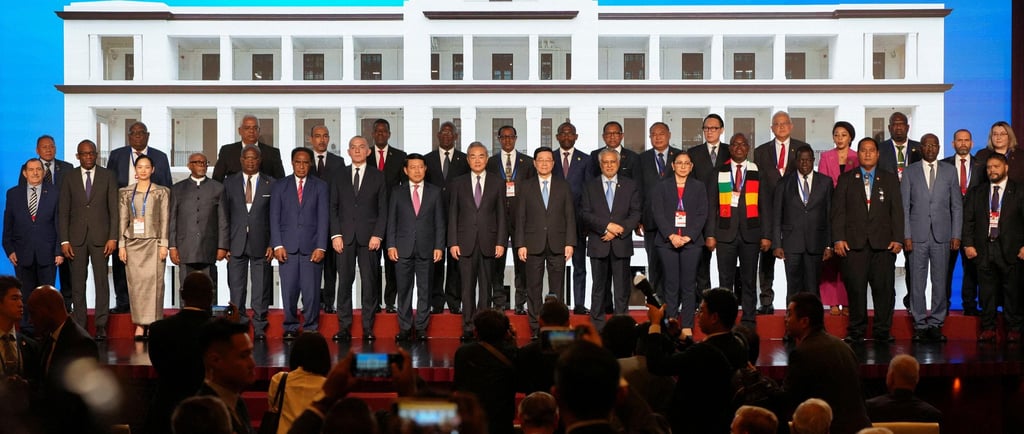CHINA LAUNCHES INTERNATIONAL MEDIATION BODY IN HONG KONG WITH OVER 30 COUNTRIES ON BOARD
DISPUTE RESOLUTION


HONG KONG – In a major diplomatic development, China formally inaugurated the International Organization for Mediation (IOMed) on May 30, 2025, during a high-level ceremony held in Hong Kong. The launch was marked by the signing of a multilateral treaty — the Convention on the Establishment of the International Organization for Mediation — by over 30 countries, including Pakistan, Belarus, Cambodia, Cuba, Indonesia, Laos, and Sudan.
The new body is the world’s first intergovernmental mediation organization and is designed to provide a platform for peaceful resolution of international disputes without resorting to litigation or arbitration.
“Mediation represents a peaceful and civilized way to handle disagreements,” said Chinese Foreign Minister Wang Yi, who presided over the signing event. “This organization will promote dialogue and understanding over confrontation.”
A New Global Institution
Headquartered in the Old Wan Chai Police Station in Hong Kong, IOMed is expected to begin operations by late 2025 or early 2026, according to officials. The organization’s mandate includes handling:
State-to-state disputes
Disputes between states and foreign nationals
International commercial and investor-state conflicts
Officials say the body is designed to complement, not compete with, existing institutions such as the International Court of Justice (ICJ) or Permanent Court of Arbitration (PCA).
Structure and Governance
China has appointed Sun Jin, who led the organization’s preparatory office since 2023, as Director-General. The IOMed will be governed by a Council made up of representatives from each member state, alongside a Secretariat and two mediation panels — one for sovereign-level disputes and another for broader international matters.
With approximately 33 founding member states, IOMed’s governance structure mirrors that of traditional international bodies, but with a distinct focus on consensus-driven dispute resolution.
Strategic Implications
Analysts view IOMed as part of China’s broader push to shape international institutions and norms, especially among countries in the Global South. The move also bolsters Hong Kong’s reputation as a regional center for legal services, particularly following years of political unrest and concerns about its autonomy.
“This is a major win for Hong Kong,” said Chief Executive John Lee, who emphasized the city’s role in facilitating cross-border legal cooperation.
However, some critics have raised concerns over China’s influence within the new organization and the potential for bias in disputes involving strategic partners from the Belt and Road Initiative (BRI).
Global Response
While most Western powers have not signed onto the convention, China maintains that the new body is open to all UN member states. Observers note the lack of participation from G7 countries but acknowledge the significant turnout from Asia, Africa, and Latin America.
Legal scholars say IOMed fills a niche between formal arbitration and diplomatic negotiation, offering a non-binding but structured pathway to settle international disagreements.
Background and Next Steps
The idea for IOMed was first proposed in 2022 by China’s Ministry of Foreign Affairs and gained momentum through legal cooperation conferences hosted in Hong Kong. The treaty signed in May 2025 will enter into force once at least 15 countries ratify it through domestic legislative processes.
Once operational, IOMed is expected to offer:
Confidential mediation processes
State-of-the-art digital infrastructure
Panels of multilingual legal experts and diplomats
Services to resolve sensitive commercial and geopolitical disputes
